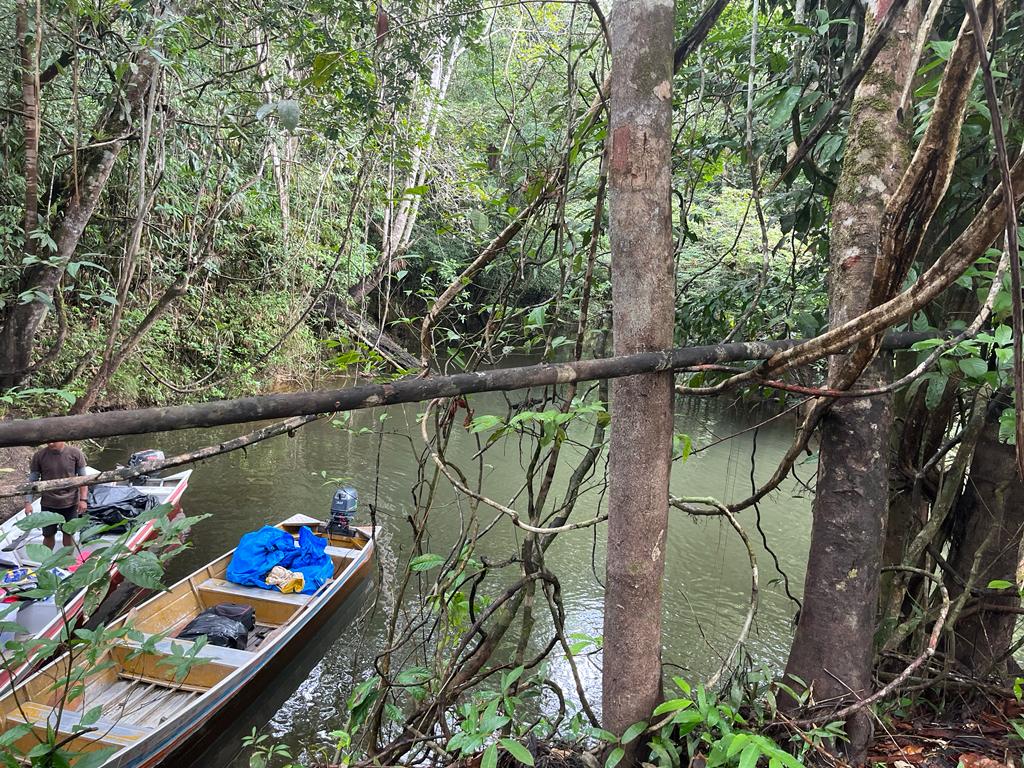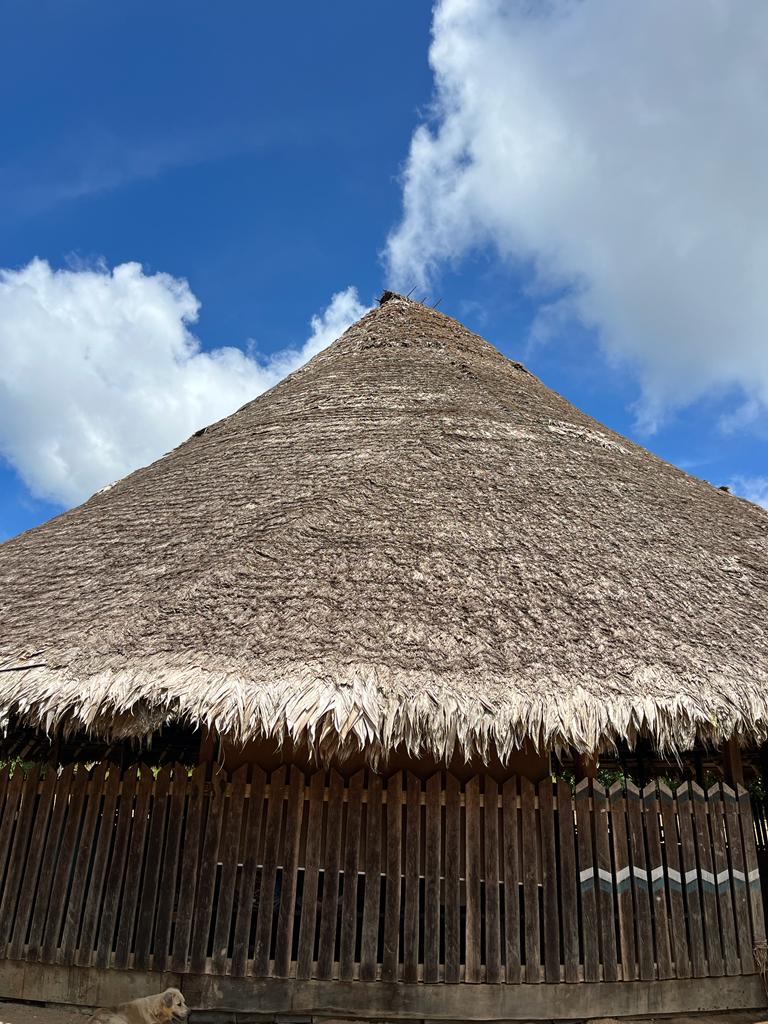Brazil is the fifth largest country in the world by area, covering some 850 million hectares. With more than 200 million inhabitants, it is the world’s seventh most populous nation. It is one of 9 countries that share the Amazon basin, hosting an estimated 60% of the Amazon rainforest.
Indigenous Peoples in Brazil have waged enduring battles for their land rights, steadfastly preserving their ancestral traditions while actively combatting climate change. Brazil is home to more than 305 different Indigenous Peoples, most of whom live in the Amazon region, speaking 274 languages. There are also more than 100 communities that have chosen to remain uncontacted or live in isolation.
Additionally, various traditional communities rely on natural resources, including land and rivers, as communal assets. These diverse groups include, community resource users that engage in sustainable resource management, coconut harvesters, riverine settlements dependent on water-based resources and Quilombolas (rural Afro-descendants). There are over 6000 Quilombola communities spanning all Brazilian ecosystems.
Securing the boundaries and safeguarding the ancestral lands of Indigenous Peoples, Quilombolas, and local communities, while upholding the laws, ensuring free access to babassu palms for communities or protecting forests from destruction, is not merely a matter of respecting tenure rights - it is the cornerstone of effective conservation in the Brazilian Amazon. Strong tenure rights protect traditional forest guardianship that plays a pivotal role in combatting climate change. By entrusting forests to community management, we fortify their role as powerful stewards making a significant positive impact on the planet's climate.

Since the restoration of democracy in Brazil in 1985 and the enactment of the democratic Constitution in 1988, significant progress has been made in recognising the territorial rights of indigenous and other traditional peoples and communities, including Quilombolas, coconut breakers, community resource user communities, and riverine people. Over 158 million hectares of community lands have been demarcated in the Legal Amazon, which comprises about 60 percent of Brazil’s total area known as the Brazilian Amazon.
However, there are still vast expanses of public non-designated lands, alongside millions of hectares of Indigenous Peoples’ lands, Quilombolas’ territories, and other ancestral lands, all facing imminent threats. Securing demarcation and titling is imperative to uphold the territorial rights of traditional communities and to safeguard the integrity of their forests.
The demarcation of over 158 million hectares of community lands stands as a testament to the tireless advocacy and resilience of Indigenous Peoples, Quilombolas, and resource user communities. In collaboration with the human rights and socioenvironmental movements, they have significantly influenced legislative processes such as the 1988 Constituent Assembly and the subsequent development of public policies.
The 1988 Constitution recognised indigenous land rights as inherent and fundamental. It acknowledged the ancestral lands inhabited by Indigenous Peoples as protected areas (Indigenous Lands, or TIs), and affirmed the collective ownership rights of Quilombolas over their territories (quilombola Territories, or TQs).
Moreover, through complementary legislation, the rights of other Indigenous Peoples and communities deeply connected to natural resources and land were acknowledged. This was demonstrated by the creation of Extractive Reserves (RESEXs)* and Sustainable Development Reserves (RDSs) within Brazil’s environmental framework, along with Agro-extractive Settlement Projects (PAEs) and Sustainable Development Projects (PDSs) under its agrarian policy. Furthermore, the enactment of free babassu laws ensures forest protection and guarantees unrestricted access for babassu coconut harvesters. These measures recognise the distinct cultural identities of communities preserving traditional ties with their surroundings, designating their territories as their lands.
* The term “extractivists” is used in Brazil and refers to communities that rely on the sustainable extraction of renewable natural resources such as nuts, rubber, fruits, etc,. rather than on large-scale agriculture, logging, or mining.
Precedent-setting policies
Brazil has set a precedent with its legislative framework and policies that affirm land rights for numerous Indigenous Peoples and thousands of other traditional communities. The country’s current political climate presents an opportunity to advance demarcation, titling, and protection efforts in the Brazilian Amazon, particularly under the stewardship of Indigenous and other traditional peoples.
Tenure Facility plays an important role in supporting indigenous and other traditional peoples, particularly the Quilombolas, advancing their territorial rights, and promoting social justice and environmental conservation by protecting the forests that are crucial in mitigating climate change.

Establishing clear boundaries for territories is crucial to safeguarding the rights of indigenous and other traditional communities over their lands. Each stage of the demarcation process plays a vital role in helping these communities to protect and manage their territories effectively, even in the face of challenges. Therefore, it is essential to prioritise territories that are still in the process of demarcation.
From a geographical standpoint, our support focuses on areas that have not yet been demarcated, particularly those within or adjacent to conservation areas in biodiverse forest regions. However, the support also extends to territories in other parts of the Brazilian Amazon.
Our support prioritises the demarcation and recognition of TIs, QIs, RESEXs, and PDSs and is based on the demands and priorities of the communities themselves.
In territories awaiting official demarcation, we collaborate with indigenous and traditional peoples’ organisations, including indigenous-led community funds, to work alongside government agencies in implementing territorial policies. This partnership aims to advance demarcation and land recognition processes.
It is worth noting that the 30th UN Conference of the Parties (COP30) is scheduled to be held in Belém, Brazil, in 2025. This presents a significant opportunity for Indigenous Peoples, quilombolas, coconut breakers, and other traditional communities to showcase their achievements and contributions to forest conservation and climate action.
For a Land Governance Assessment Framework (LGAF), go here.
To learn more about the work of Tenure Facility partners in Brazil, see below.
Recent projects